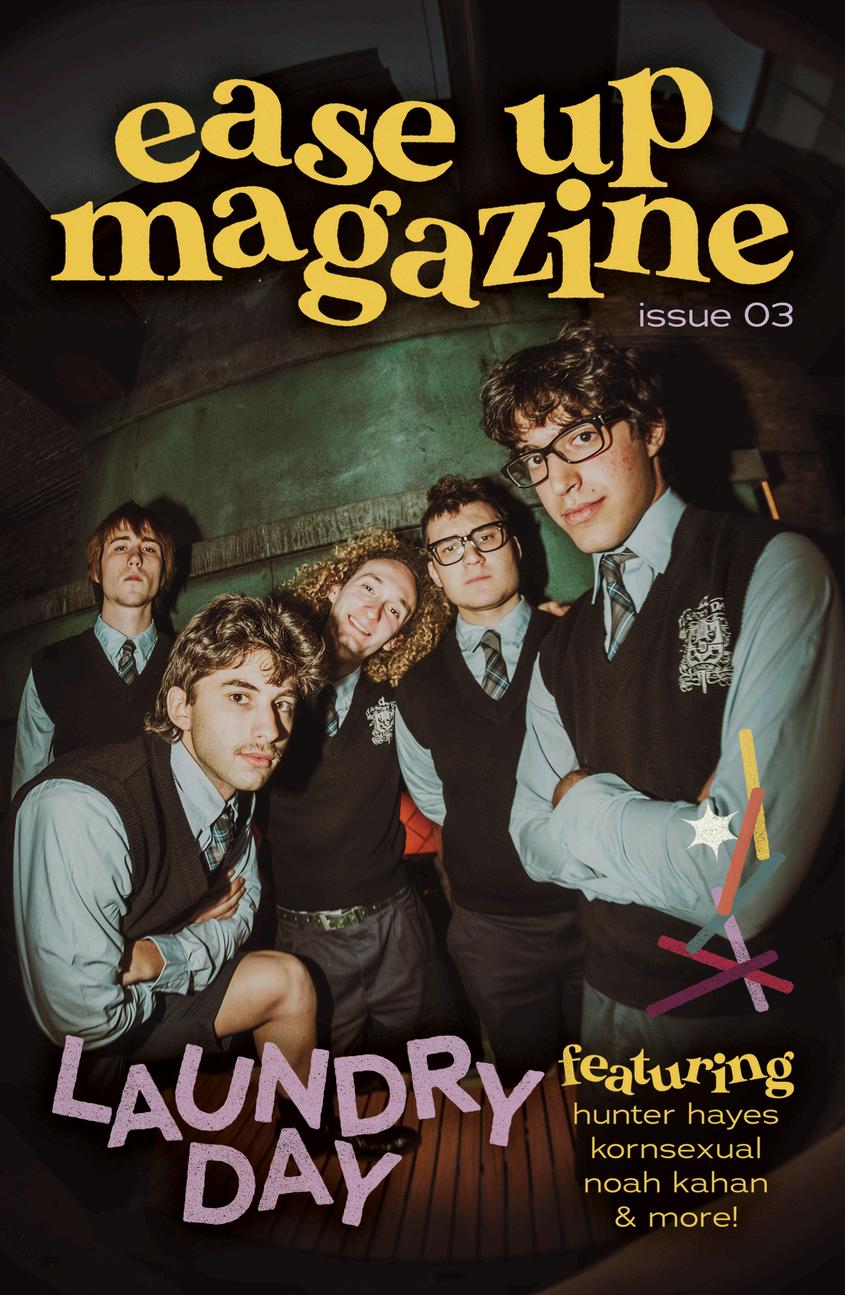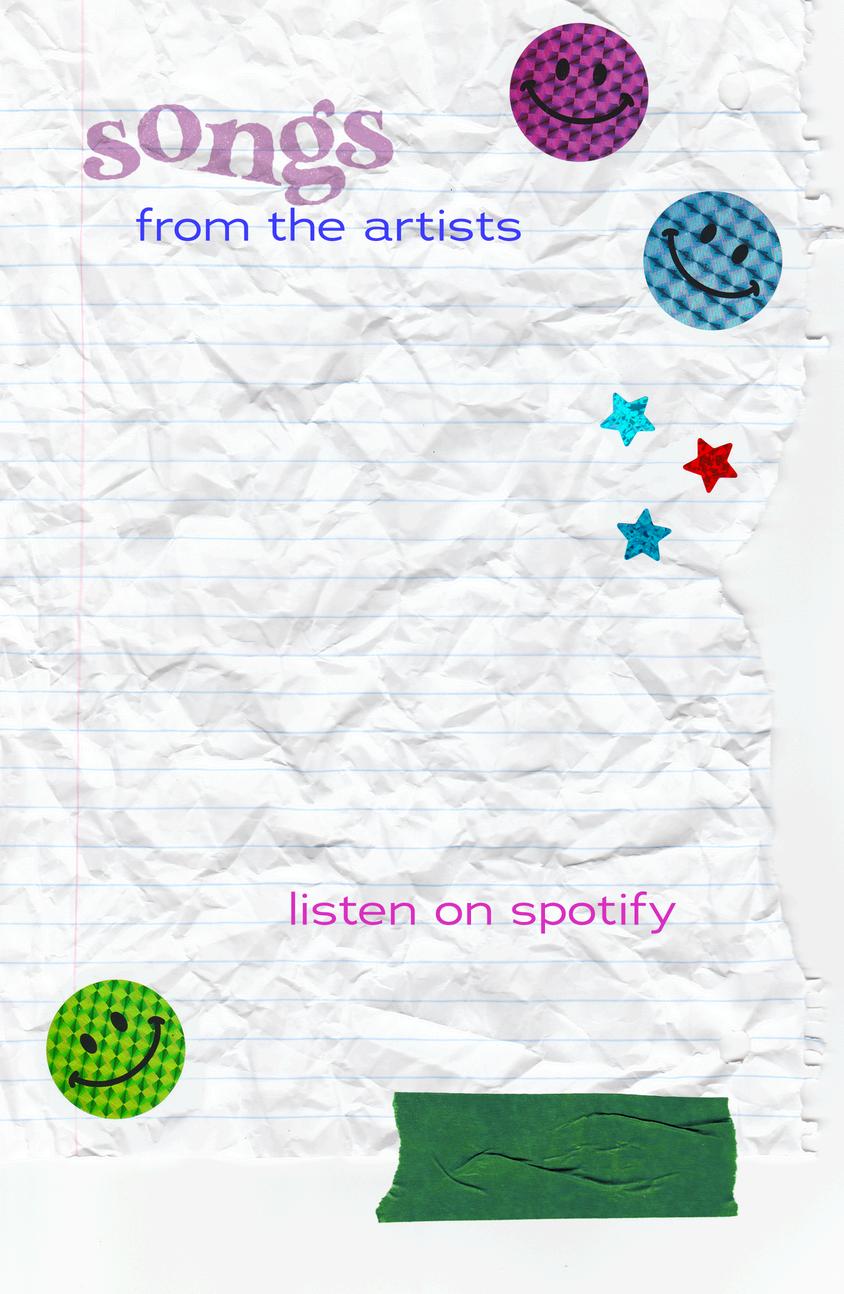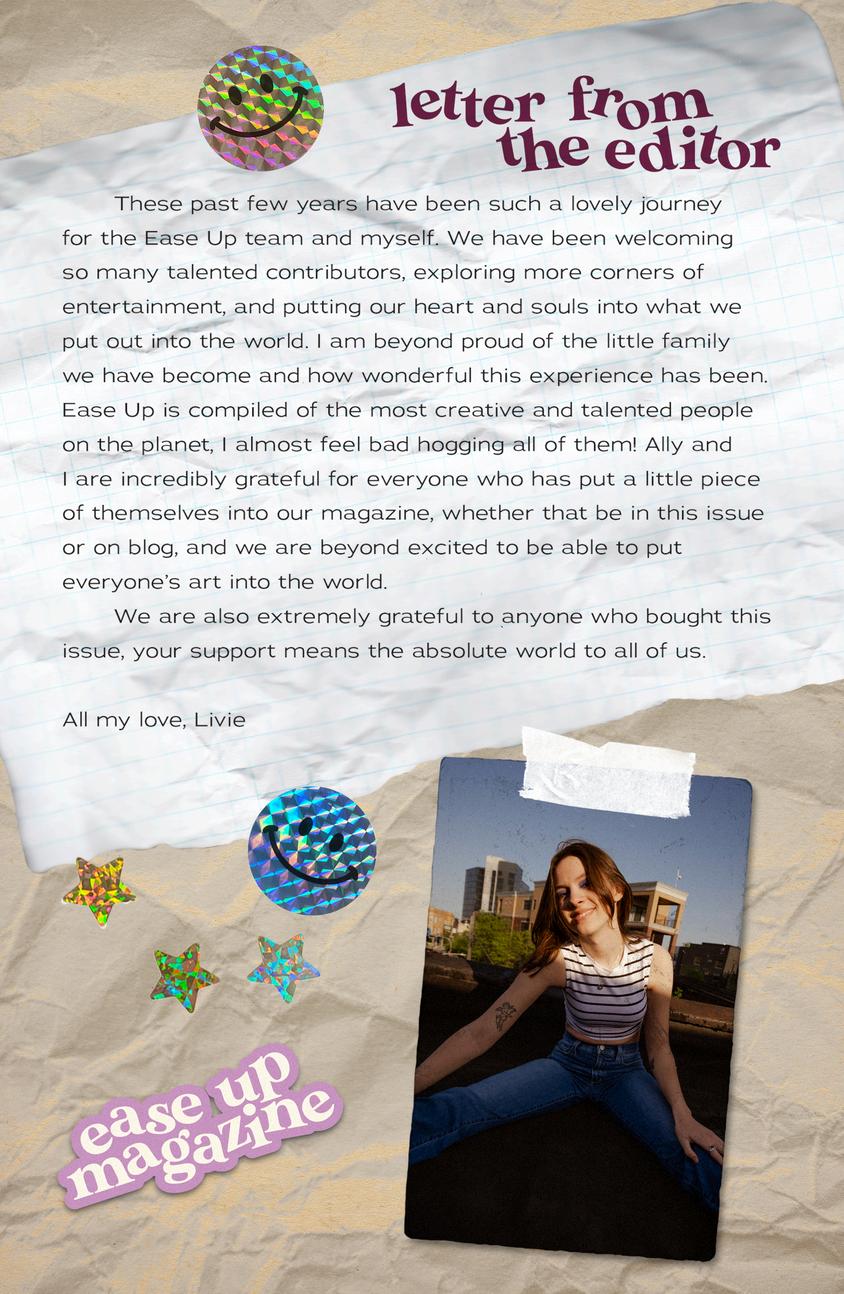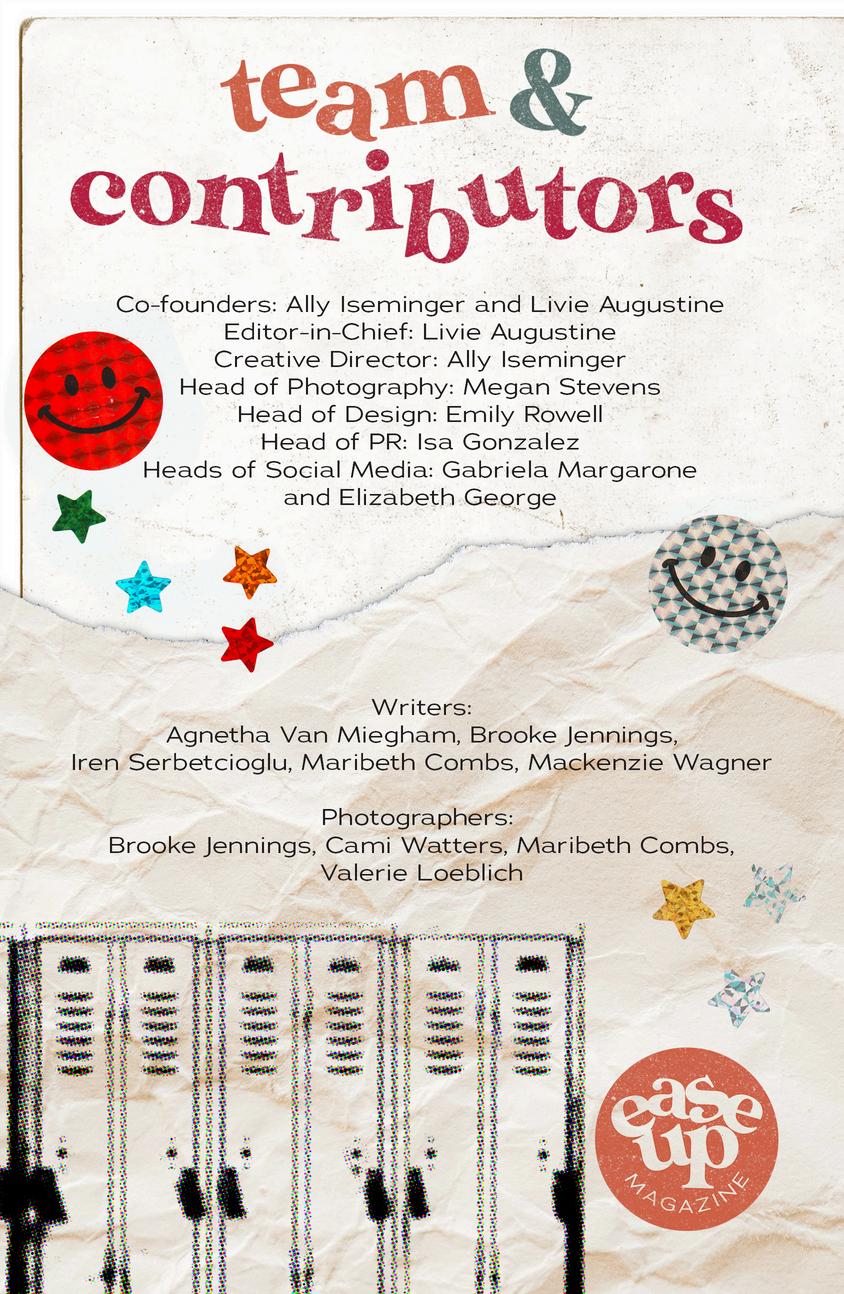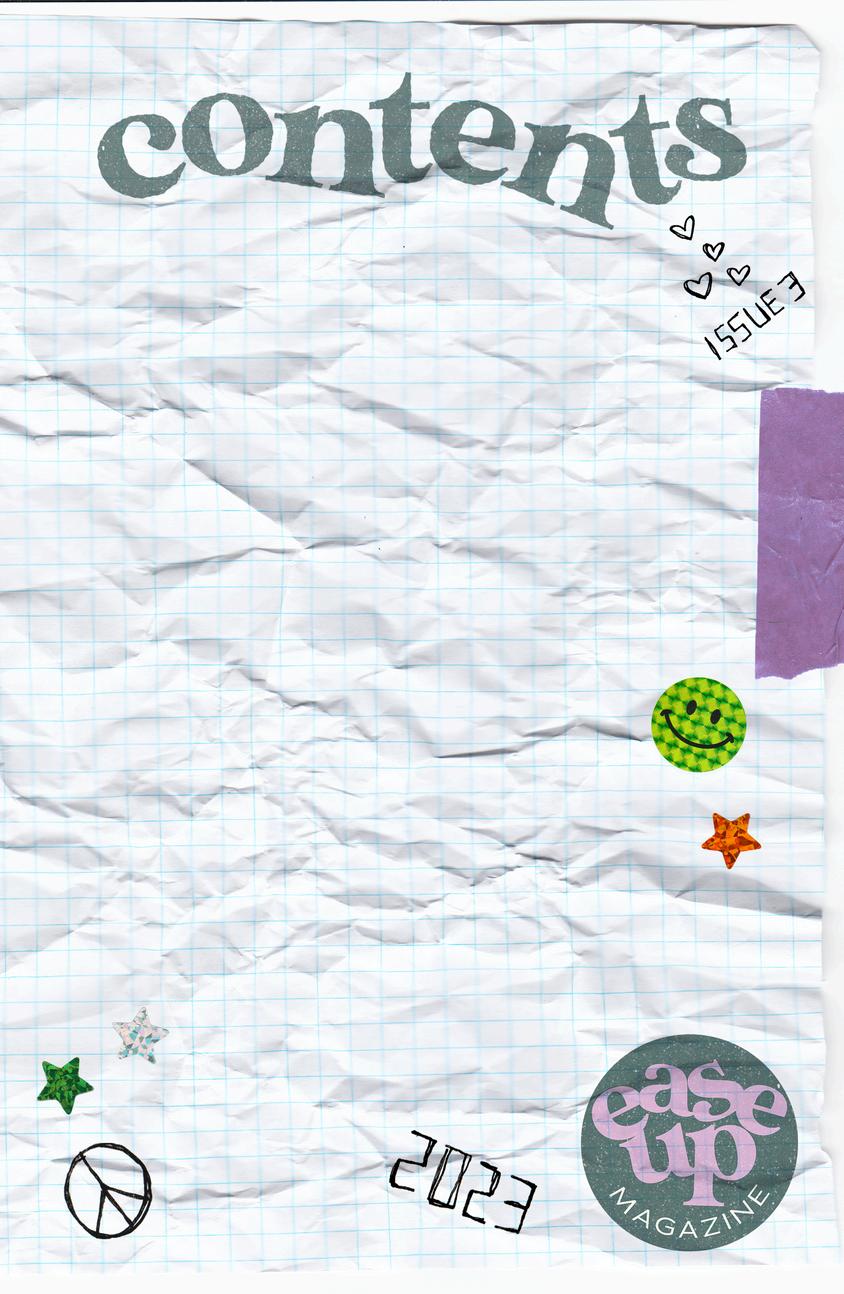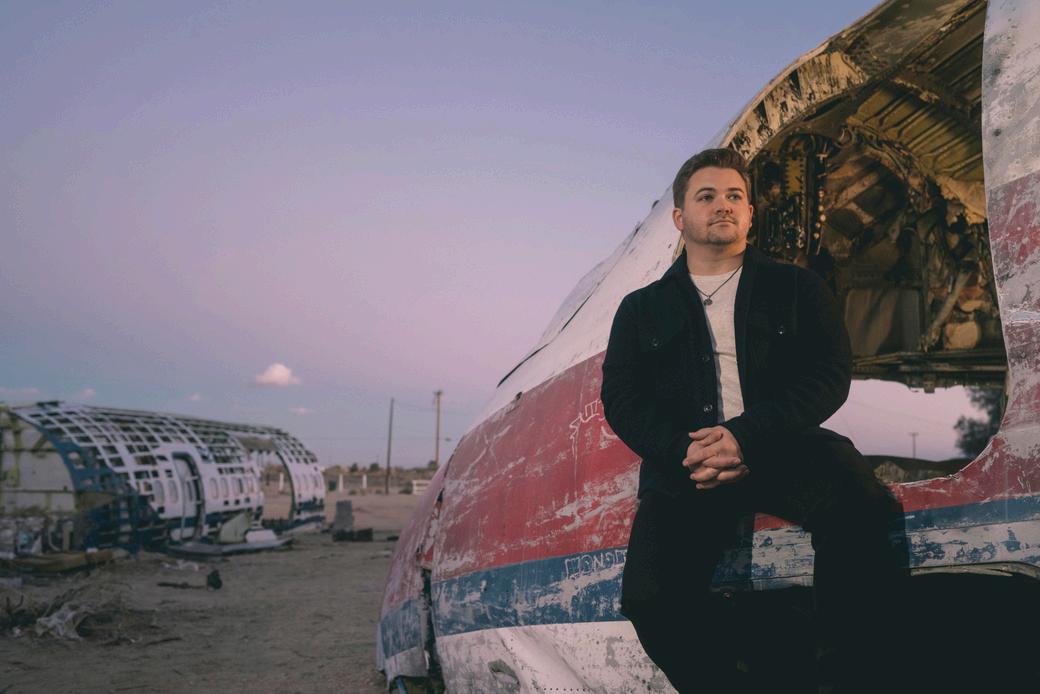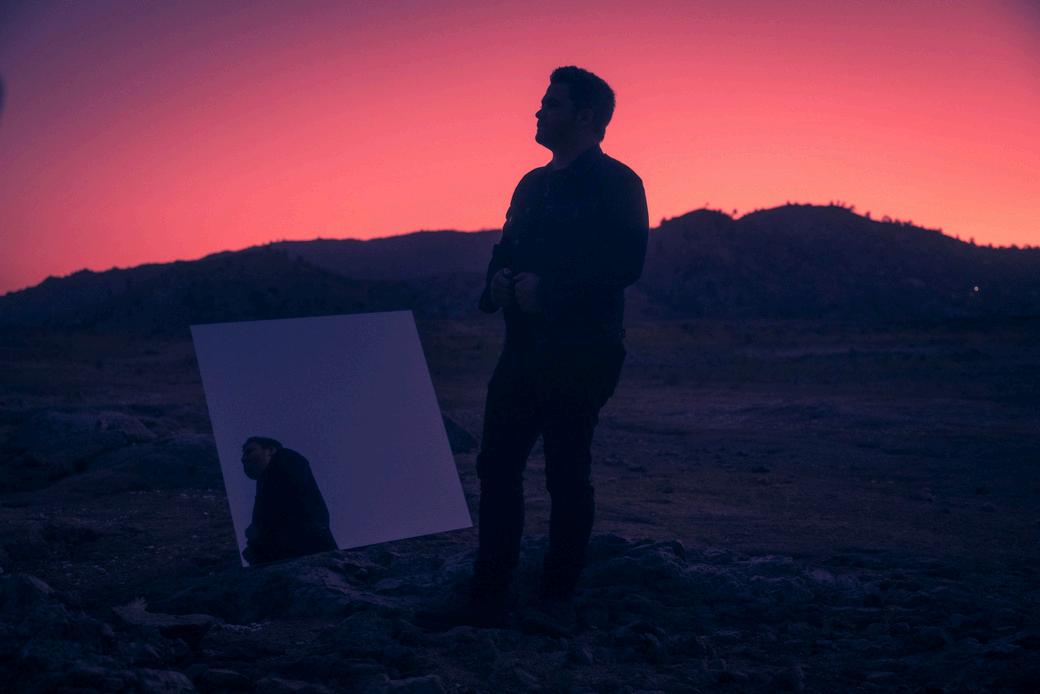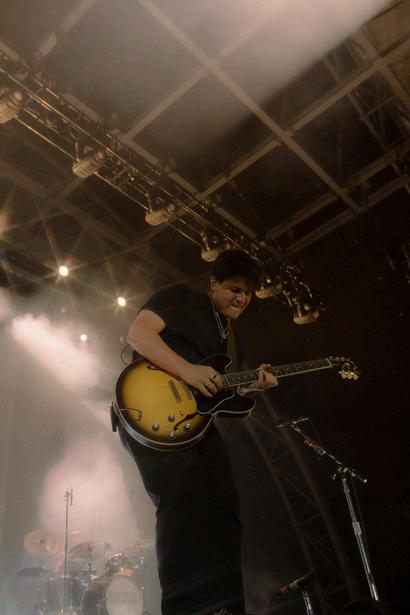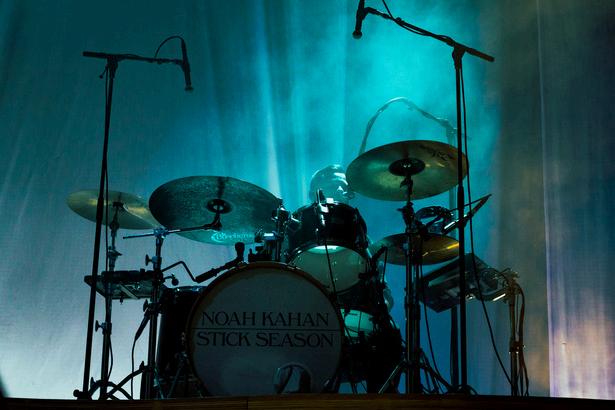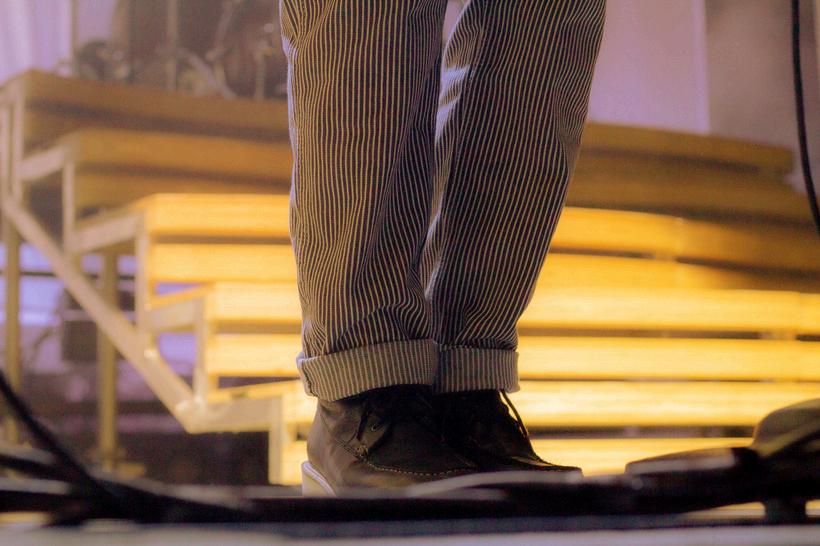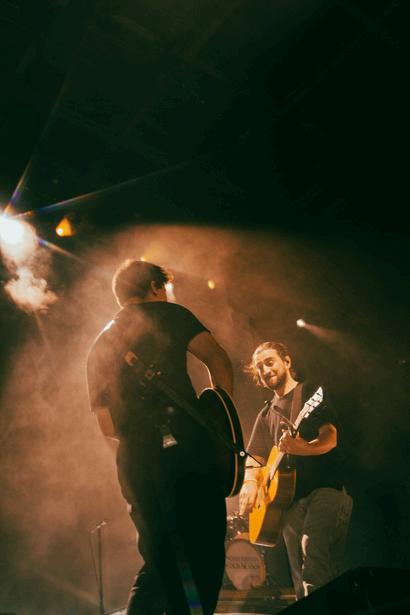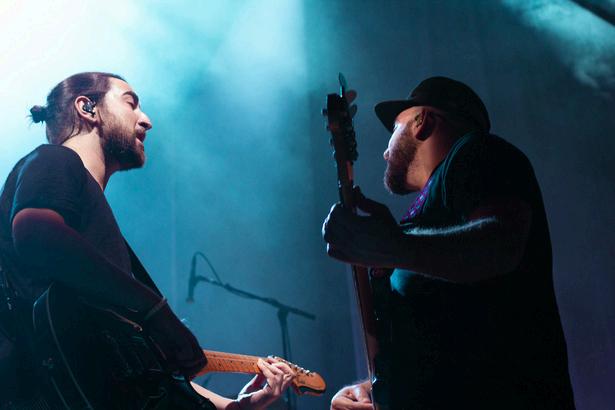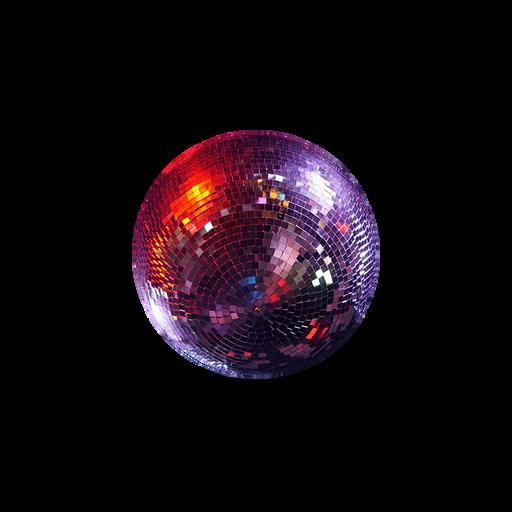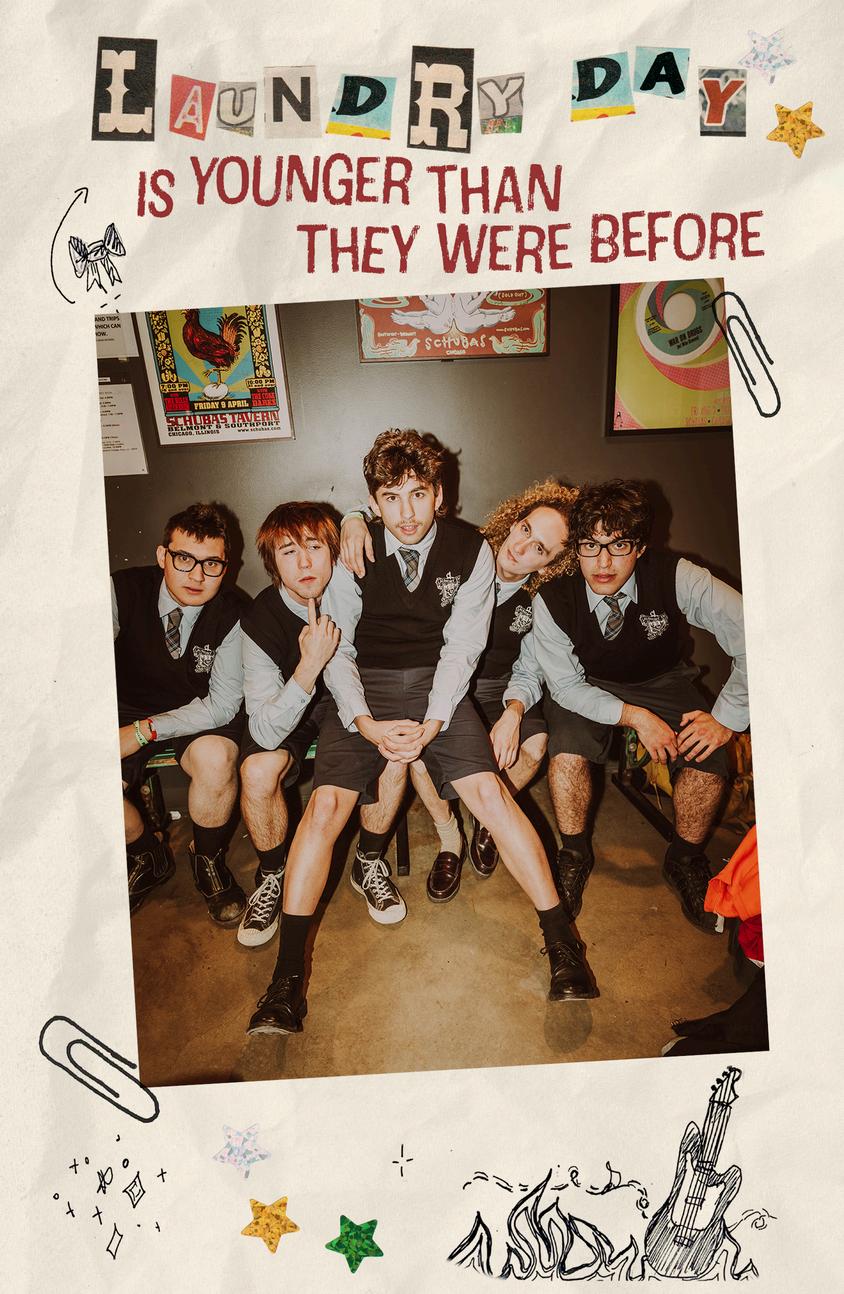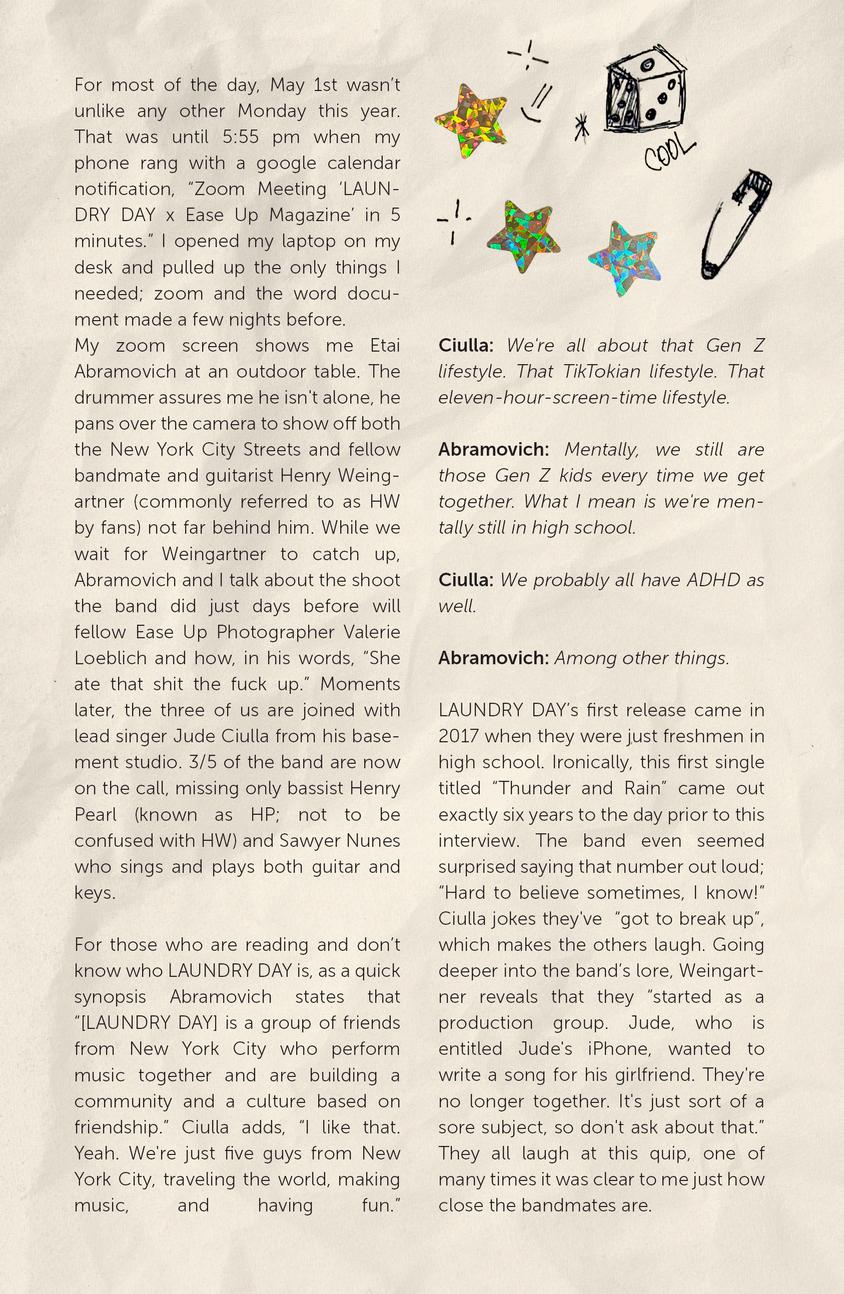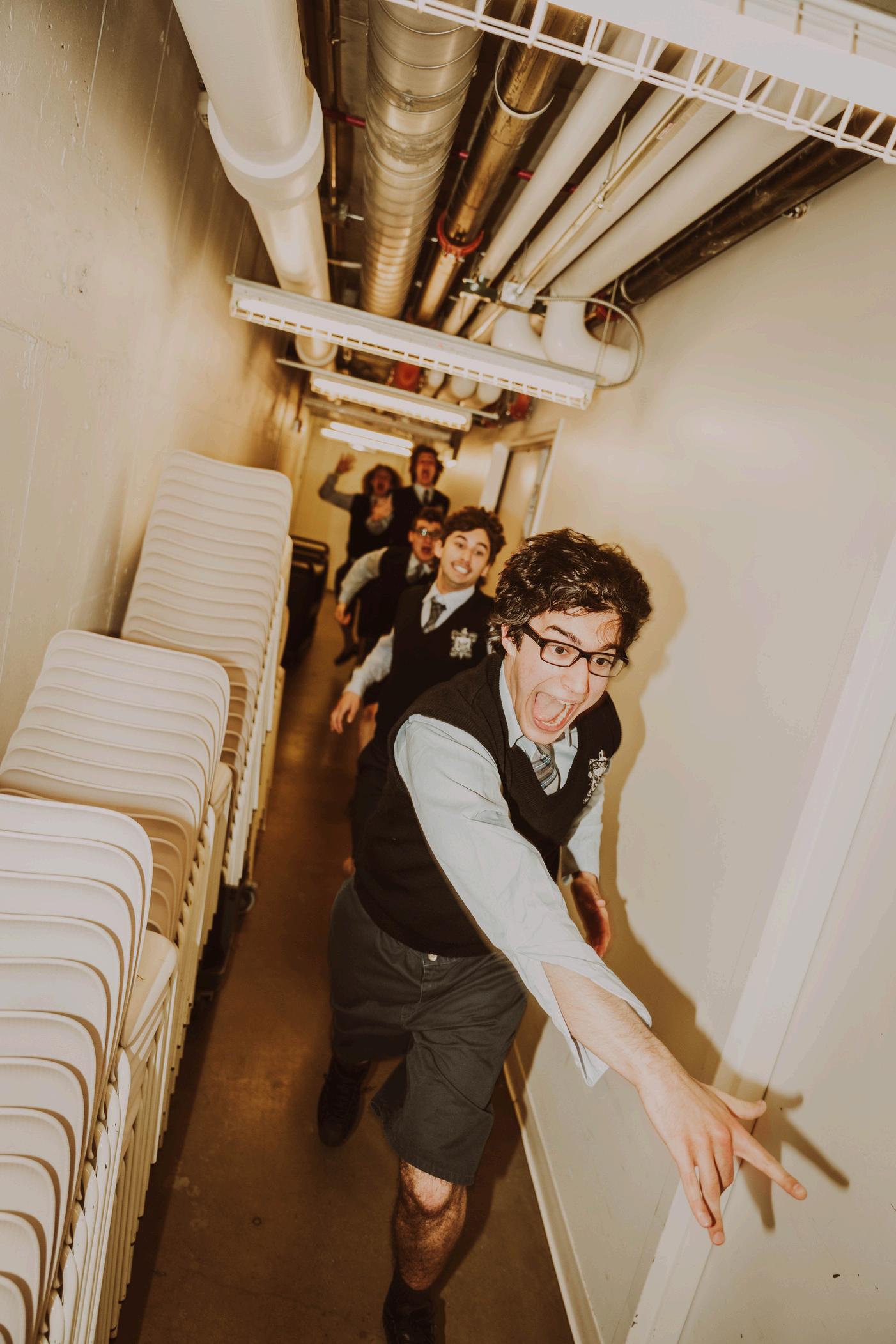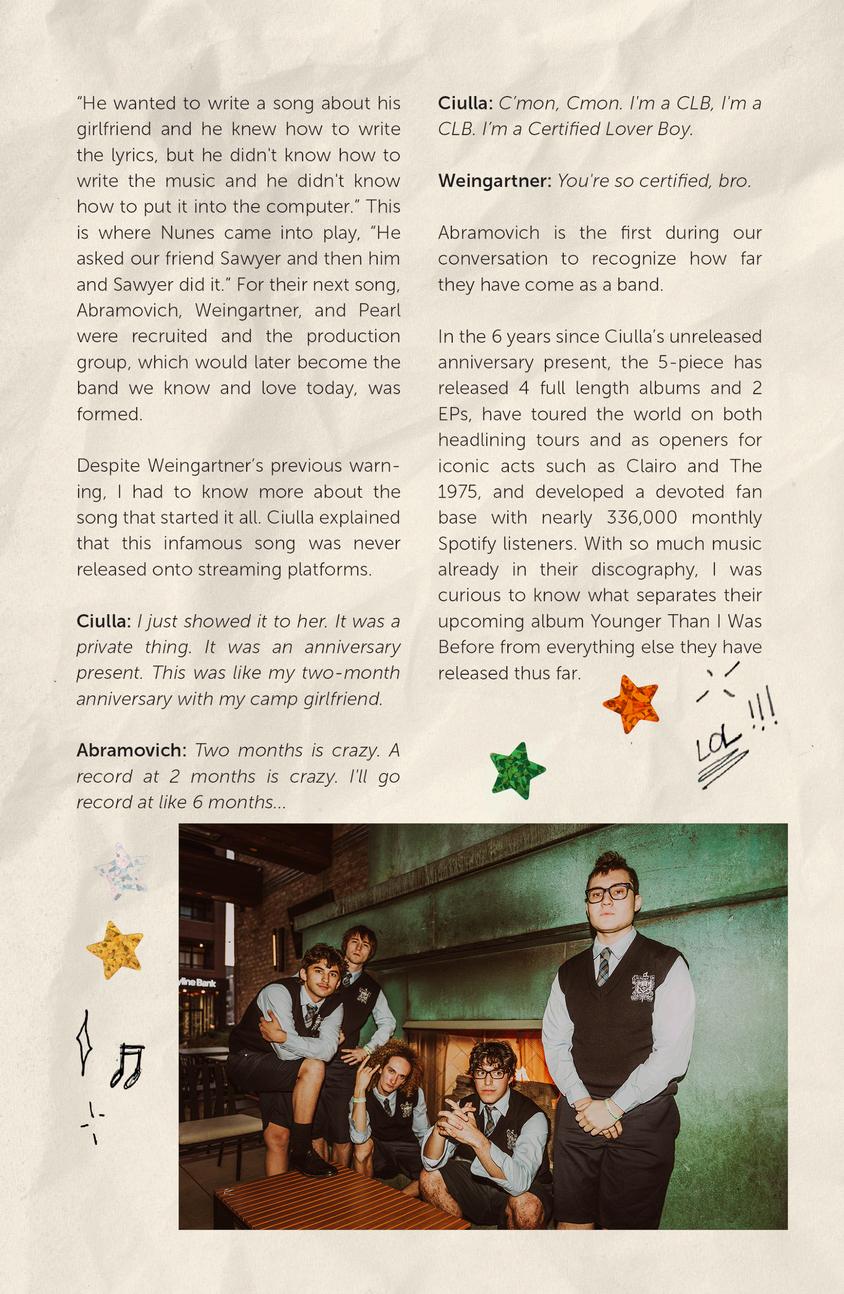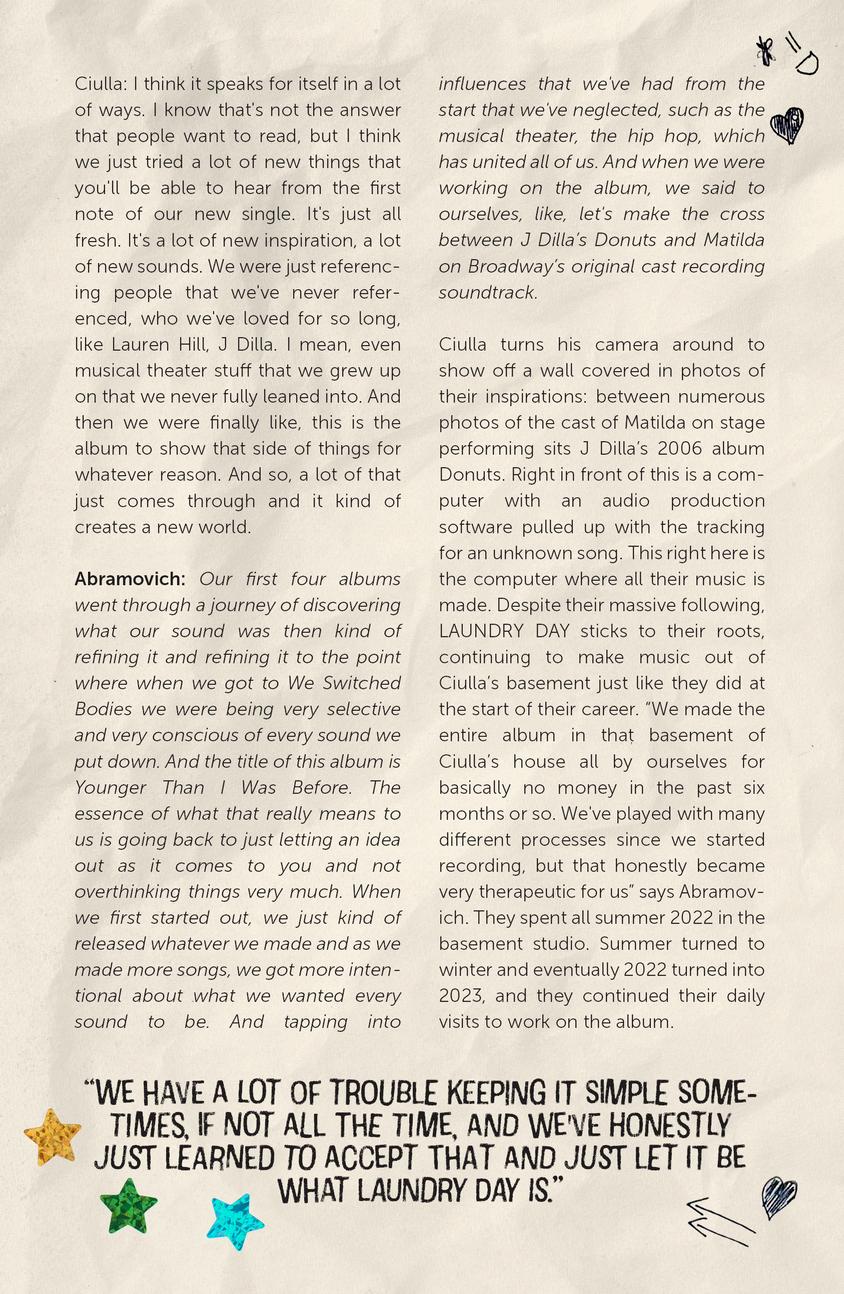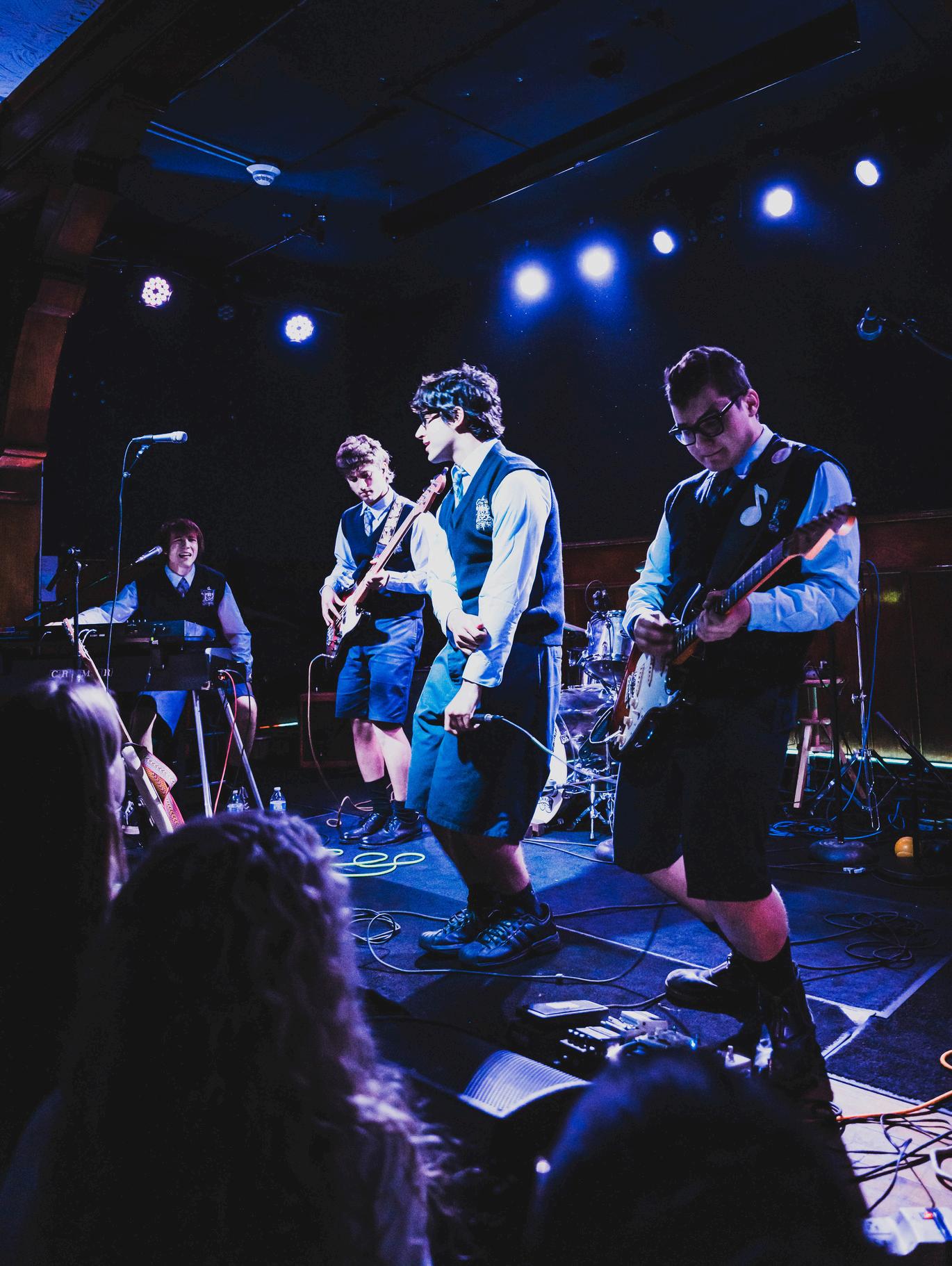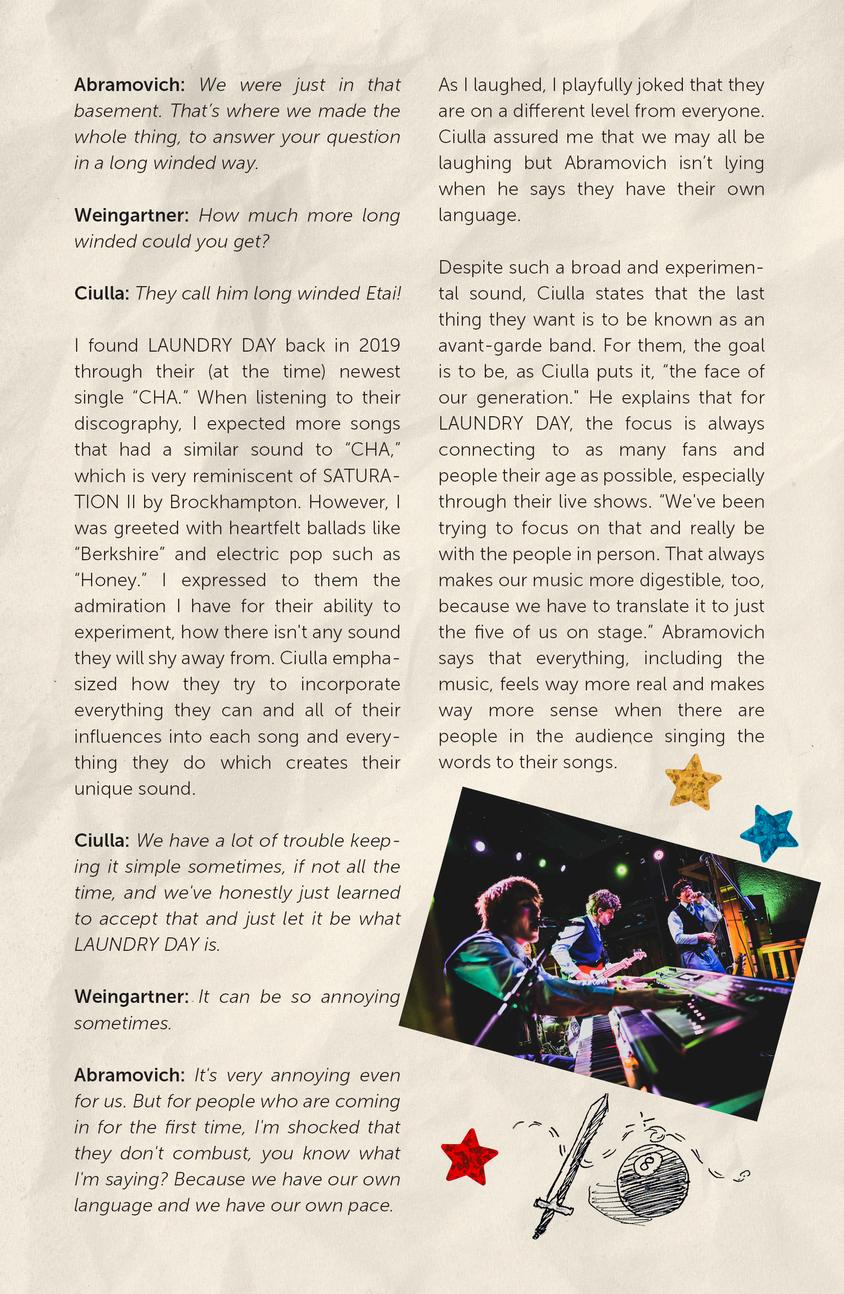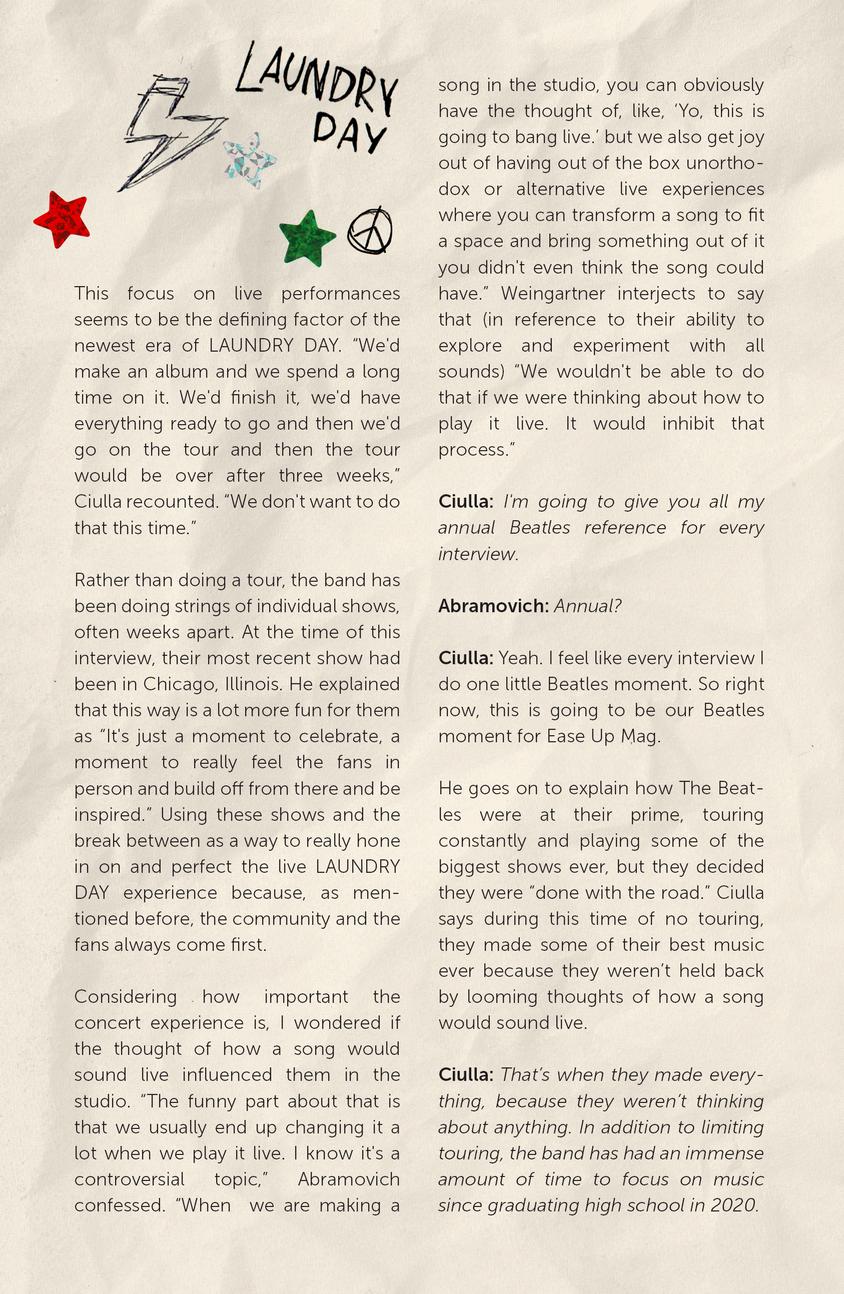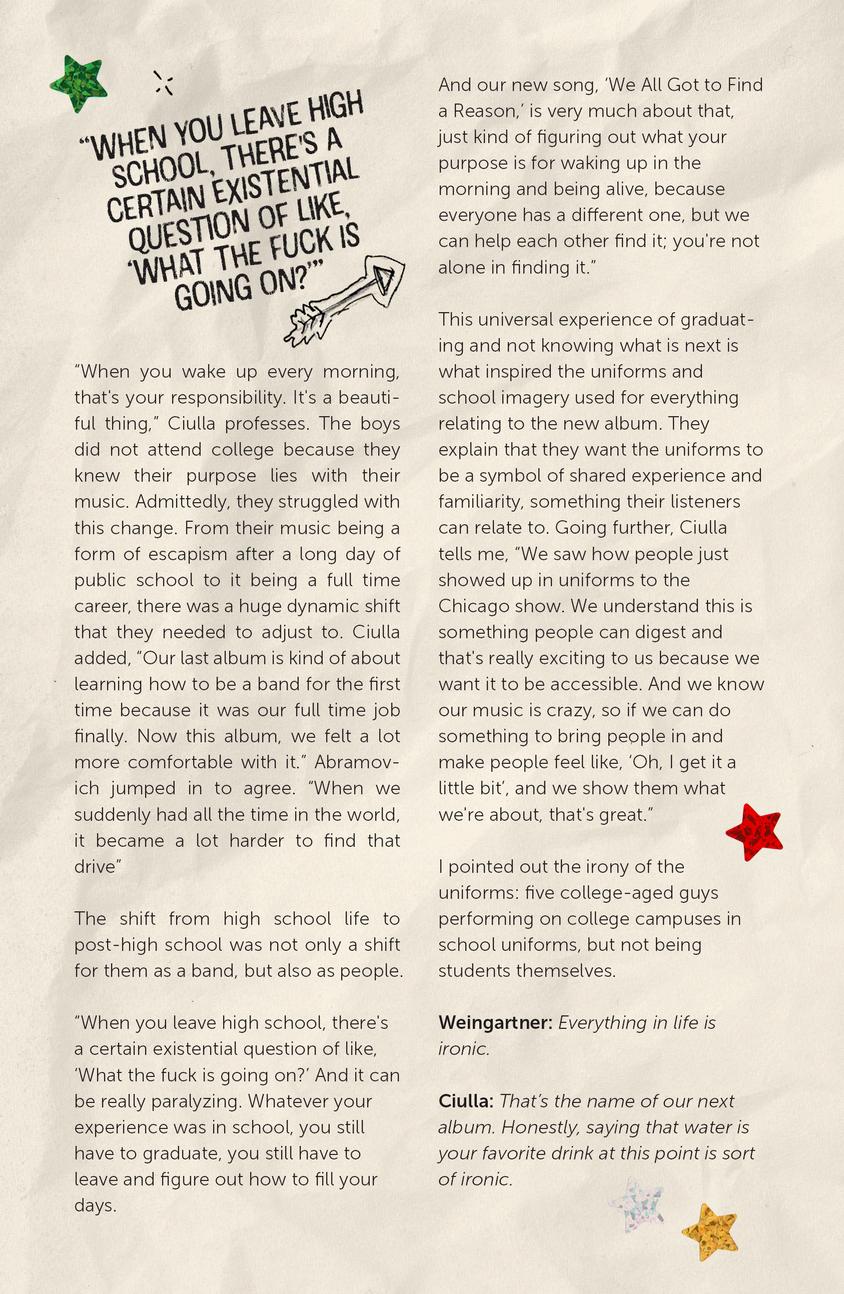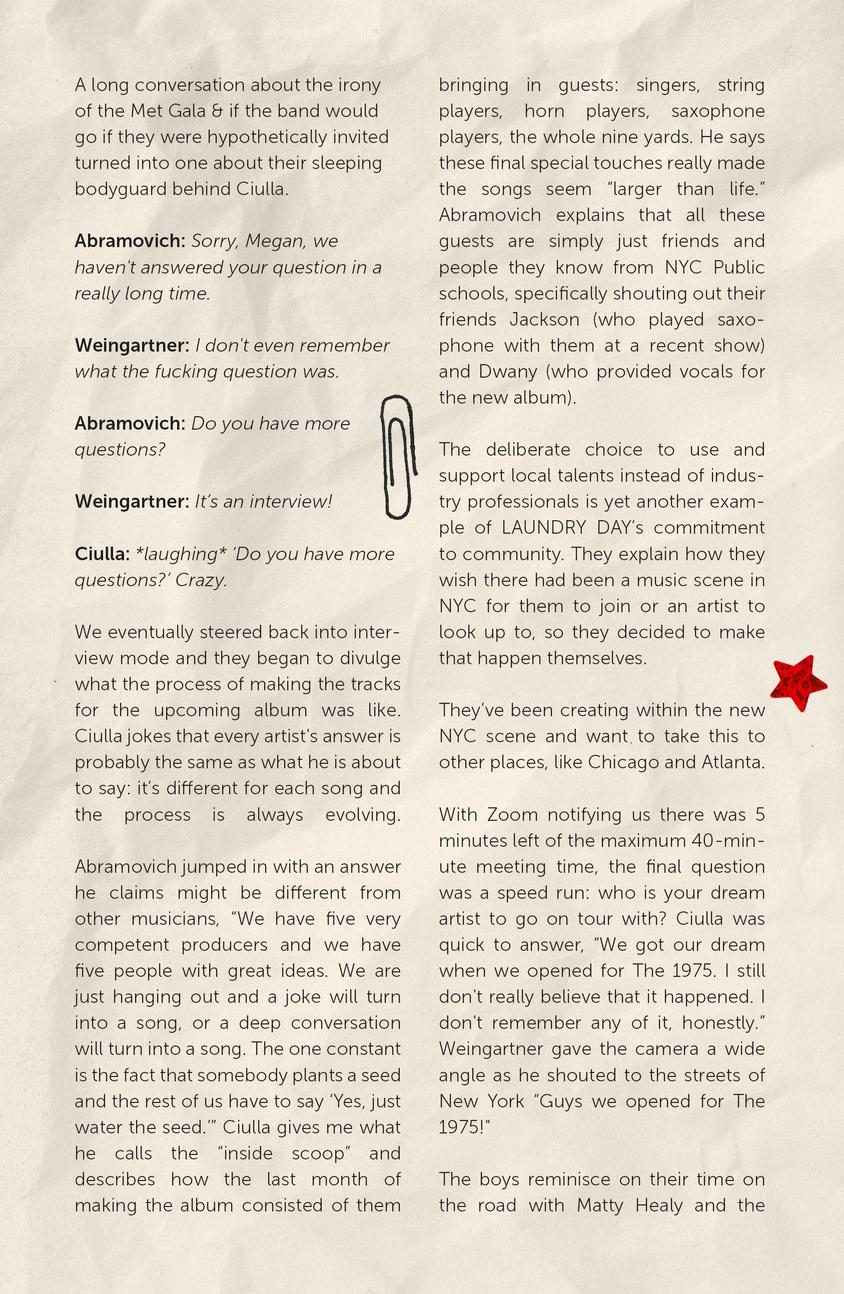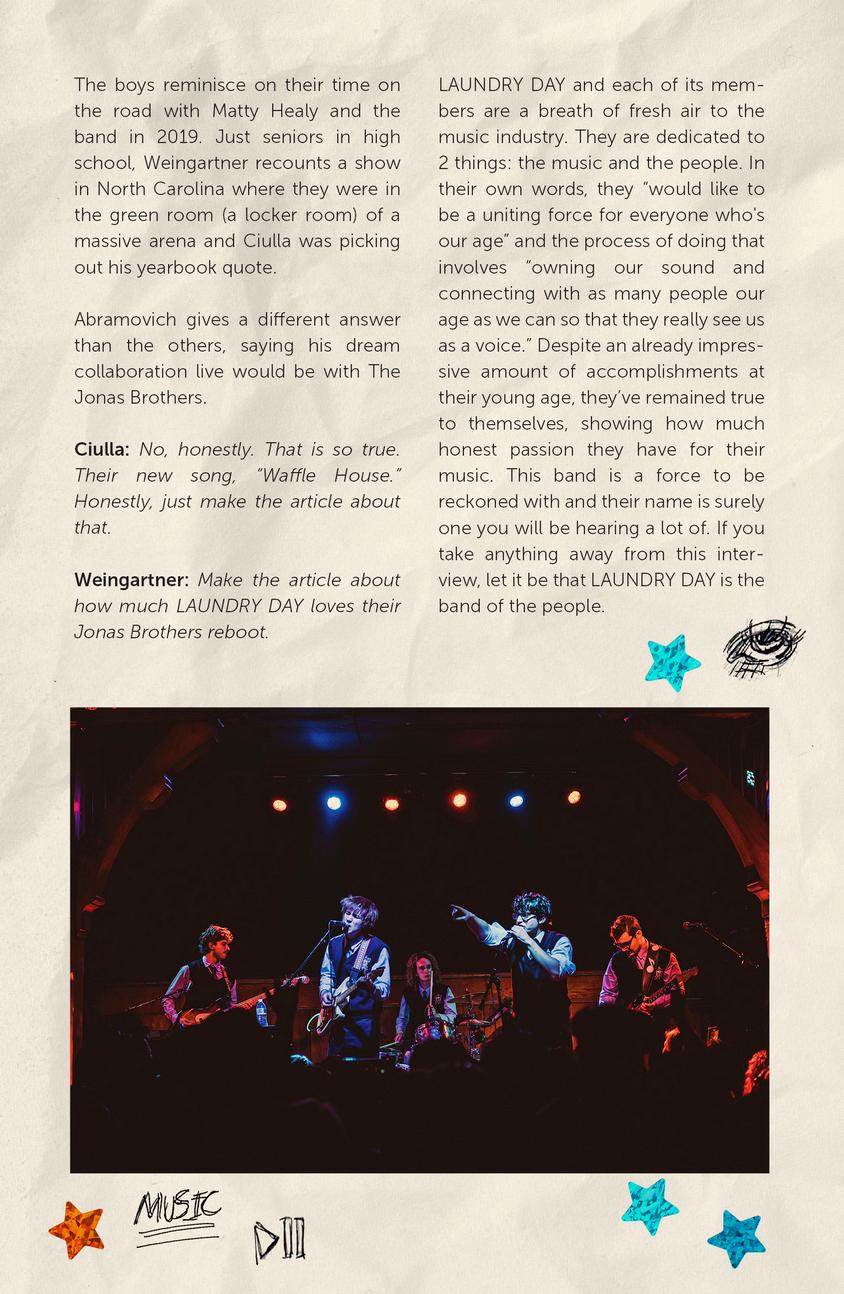Reintroducing Hunter Hayes
Interview by Livie Augustine
Hunter Hayes, previously known for being a country heartthrob, has finally broken free of expectations from the industry and the world as a whole His new album, Red Sky, is his reintroduction into music, exploring a new version of Hunter Hayes that questions the idea of needing a specific “sound ” Hayes’ experimentation with new themes, sounds, and production styles has evolved into a record that is relatable, intriguing, and thoughtful
I really enjoyed the variation in sounds and how you mesh genres like country and pop and alt-rock altogether. What influenced you tocreatemoreofafluidsoundforyourself?
Hayes: I'm so glad you use that word because that was the goal and I'm not going to pretend that it came easy It was a process This was my first independent album in a long time, over a decade And so this was my chance to say, yes, I've done country and I'm proud of the work that I've done and the music that I put up, all but one song I'm proud of that body of work that I put out and at the same time, there's so many other things that I've wanted the world to know I do for a long time And I just haven't really I'm editing my words a lot because I don't want to throw anybody under the bus The truth of the matter is, I think when you work with a label, there's an economic aspect to making a record that somebody like me as an artist, I don't necessarily think that way I think there's a lot of stuff that I didn't do because there was this understanding that if it wasn't one particular thing, then I didn't get to put it out I had a whole album that I never got to release, and there's so many songs that have never been released and so this was my first chance to say, I'm going to do all of it because I want people to hear And this album is an amalgamation of two, even three different albums I was working on Red Sky Red Sky originally was just going to be like “Wallflower,” “One That Got Away,” “Missing You ” It was originally going to be more of an alt-rock album, then there was a second project that had, now that you ' ve heard it all, “Feelings” and “Someone Will” and “Sober” and those kinds of things that felt really good But I was keeping
those at a distance because I wasn't sure if I was “allowed to do it ” And everything came into the same place and we said, no, we want everybody to know all of the things that I do And I just want to do it, y’know I'm not making it about phases, it's not a 180
I'm Hunter Hayes. I'm a singer, songwriter, and I make a lot of different music because that's my fun.
I enjoy the challenge of bringing in the things that have influenced me over my entire lifetime and creating something that is different and new and hopefully hasn't necessarily been heard before as it is I want people to hear a new genre that is just me and what I do So this was my chance to put that all out there and let the world and the fans that have been with me for ten years see “Oh, yeah, methods change He's just doing more of the stuff that we ' ve not heard a lot of ” Yeah, so that's it and the whole thing follows, I think, what helped is really being inspired by all the Disney movies and all the epic [films] I like using film as a reference just because a lot of my favorite directors are my most inspiring individuals when it comes to putting together a project I like thinking about it as a movie because there's a storyline I really enjoyed writing and creating this album based on the story that the album had once it all came together

Now that you mentioned films, were there any specific ones that you took inspiration from?
Hayes: That's a great question I don't know if there were any specific films one of the things I did a lot of during this process was, I'm a big fan of Master class, and so there was a season where I was kind of burnt out and I was multitasking So, I was editing things and also watching Master class and there were just so many takeaways from listening to people like Hans Zimmer and [James] Cameron I don't know that there was a specific film I watched a lot of movies that really inspired me, but I don't think there was any one necessarily I think the goal was to try to figure out what was my film
Right. Well, just the art of storytelling in general.
Hayes: Yeah, exactly
Were there any artists or musicians that inspired these different sounds? Because you've always been used to being so country, and now you're blooming into this more poppy and more alt sound. Was there anyone where you're like, wow, I love their music, this is something that I would love to sound like?
Hayes: Not necessarily because the thing about that, and I appreciate you saying that, I'm glad that it's coming through in the music because that's always been part of my DNA It's been part of my DNA since I moved to Nashville When you look at my first record deal was with Atlantic out of New York because we always knew that there was Country was a part of what I do, but there were other parts of who I am The first album, the goal was I want to make an album that fits just as well in country radio as it does on pop radio without any remixes “Wanted” is my favorite example of that because that's exactly what we did I think that was the starting point I think as things went on in my career, things got complicated between labels and other topics that we don't have enough time to cover But this was my chance to return to the debut record and say, if I was to continue based on the lessons that I learned there, this is where I would be, and this
is where I am, and this is where I've always been
So a lot of those influences have always been there These are things that I've done These are songs that I've made and influences that I've used, I just never got to put that music out This is my first chance of getting to make an album and actually put it out So it's a breath of fresh air
Would you consider this album another HunterHayesdebut?
Hayes: That's such a beautiful statement I do feel like that I feel like that in the sense of that I think this is a chance for me to really let everybody in on These are all of the things that I do and this is who I am I'm a singer, songwriter, make a lot of different music I'm influenced by a lot of things, and I'm going to use every one of those influences I'm not going to leave anything out So, I do feel like it is another debut record 10 years on
Is there a difference between the different genres and how you write the different styles?
Hayes: I love production and I love the challenge of [writing] I think the way that I write is very lyric and song based So I think the lyrics tell you what attitude the song [has] I think of “Sober,” right? If you ' re going to write that kind of thing, if you ' re going to say this thing, which course in the past I've been told like, “Oh, you can't say that,” and so I think going and attempting something like that It was like, oh, well, this song needs to feel confident, It needs to feel sassy, which I've never really touched on before. I've touched on it, I guess, in “Yesterday's Song,” things like that But I think that a lot of this project was just like, Let's write the song first Let's figure out how the lyrics want to be sung and then we'll figure out what the genre is that it was influenced by and we'll use those things from those influences, those sounds, those instruments We'll use that accordingly I like writing a song without producing a version in the room Even though we did that on a lot of these songs, I took the producer hat off I sat as a songwriter at first and worked with my collaborators

In some cases, I worked by myself, but I worked with my collaborators on the song and when the song felt like it was supposed to be [we] took the demos or whatever we worked on home Every one of these songs went through, like, at least three versions We would do one in the room the day of, then I would take it home, I would deconstruct it, and I would start from scratch And then I would take it to another collaborator who was helping me look at the whole project from the 30,000 foot view and say, okay, what does this song really mean in the context of the project? So the genres were kind of just a result of listening to the lyric and saying, what is the spirit of this song and what does it want to be?
Photo by Andrew Zaeh
What made you decide to release both “Lonely Loves Me” and “Normal” in tandem witheachotherassingles?
Hayes: In this project, I get to release more singles than I ever have from a project The one thing I wanted to make sure was, as a fan, the album comes out and there's still more to discover from the album In the past, I've only been able to release a certain amount of songs before we release the project So what was nice about this is I get to take people on It's not necessarily in track listening order, right, but it is kind of a journey through like, if I were to introduce all these new elements of what I do, how would I present them to you? How would I talk about them in a conversation? And so this is the part of the conversation where I'm like, okay, now we ' ve always done sad songs, and that part hasn't changed That's still part of what I do, and it's not all of what I do, but part of what I do
This is a really uplifting project and there's a lot of energy and a lot of uptempo stuff, which I didn't necessarily try for, it just happened, which I'm really grateful for. “Normal” and “Lonely Loves Me” were the most vulnerable songs on the project and I felt like I think we as a team talked about it it was kind of the Valentine's Day rebellion we ' ve talked about because there's no like “love” songs on this album and so who do I represent? Or who does this album represent? And I felt like we all I’ve got to give credit to the team talked about length, and we played with different songs, and I just felt like if we ' re going to release these vulnerable tunes on their own, [right before Valentine’s Day] is a great time to release them because Valentine's Day can be a weird season for a lot of people And I'm speaking from experience It was just a chance for me to say, we ' re going to get vulnerable, we ' re going to get real, and then we ' re going to get out of it We release more music that says, times change, life gets better, you move on I don't know, it was a chance to be really vulnerable with everybody in the context of how we ' re telling the story leading up to the album
Obviously it can get a little bit uncomfortable being vulnerable with other people, but you've been vulnerable in your music for a very long time. Do you feel like you still get nervousreleasingthiskindofstuff?
Hayes: One of the things that I discovered on this album that I think I'm grateful for, and if I can use the word proud, I'm glad that I kind of dug into it When I was coming up in the industry and this is a whole other conversation, I have a lot of feelings on this, so I'm going to try to condense them when I was coming up in the industry, a few of the icons that I looked up to, wrote very autobiographically The plus and the minus The plus? I felt their authenticity The minus? I think that I watched that become a business of telling other people's stories instead of your own and I didn't like that I didn't want that I think, honestly, what hit me the most was in the last project, there were so many songs that I loved writing and I was really proud of, and people kind of assumed what they were about, which kind of sucked because I was like, it's not what it's about, but I also don't even want to address

it because it's not that important Whatever you need the song to be, it's your song At the end of the day, once I've released it, it's yours
I think this project was a big opportunity for me to learn because I used to see it as either you write autobiographical and you ' re authentic or you write concept records and it has nothing to do with you I always struggled with that because I was like, there's got to be a version that links the two, and on this album, it was an opportunity for me to write about things because a lot of what you ' ve heard is about the industry, right? And my relationship with the industry, but it's written in forms of love songs and things like that But the other songs were a chance for me to talk about and write about feelings, but not necessarily have to write about something I've experienced A lot of these songs are just conversations and common thread It's kind of more about learning about being a human because I've learned from a lot of people and I've experienced some things but also just felt a lot of things that I've had to figure out Conversation leads to common thread, leads to some songs about discovery and learning about yourself and the world around you and how you contribute to the world around you So a lot of this record was a chance to be vulnerable but also conversational This isn't a monologue anymore, this is a dialogue
I read that you did a lot of the instruments for the recording, but I wanted to talk specifically about the lack thereof and “Lonely Loves Me.” What made you decide that you wanted that, including the synths and all the vocal samples,tobebuiltentirelyfromvoices?
Hayes: Honestly, I think that if I were explaining the process of learning how to produce this album, that song is a great example because I never knew what to do with it It would be easy to turn it into just, like, acoustic vocal The version that I did with Mokita, my co-writer, was that it was just, like, two acoustic guitars and vocals, and it was so moving, and it also didn't finish It cut off after the second chorus, which is quite common when you ' re working on demos You tend to just like, sometimes when you ' re in a hurry to make things easier, you finish the parts of the songs that are finished
and you don't pretend to have the rest of it figured out But there was something beautiful about kind of how vulnerable it felt As I approached the song, I tried a lot of different approaches to it production wise, but none of it felt right, and I was working with Trey Campbell, who is the vocal producer on this album, and I've never worked with a vocal producer before, so it really helped me unlock what I felt like was more of my potential than I've been able to achieve on albums before this
As we were working, this song came up and I was like, guys, I really want to try something, because it was me, Trey, and Finneas, also an incredible singer songwriter, who was helping me work on these vocals It was kind of just an opportunity to try something with three of us vocalists in a room, just like, let's see what happens when we try something So they kind of started kind of messing around with different vocal techniques or vocal synths and things and when I got it back, like a lot of this record, and I'm not saying I've produced this record by myself, but I think a lot of the realizations that happened on this record were me having a solo moment with each song and saying if I could do anything, what would I do? And I think the lonely loves me, it felt like a lot of my voice is screaming at me and so I thought it was kind of this AHA moment of okay, this needs to be vocal based, how do I do that? I've never done that before It came together in like two or 3 hours, it was just a lot of just staying in flow, staying in the zone, committing to the concept and walking away from it I even lost the drive I didn't lose it, but the drive that that version of the song

Photo by Andrew Zaeh
Hayes: There was only one version of it when I finished and it crashed For a minute I thought we were going to just have to put out an MP3 version of it, a rough version, which I kind of like, surrendered to and I was fine with and I was like, well, that's what it is But it just felt natural when it was a lot of voices and I loved how much of a standout it was on the album and how it allowed the song to really be heard as a lyric
Is there anything you want readers to know thatyouhaven’tgottenthechancetosayyet?
Hayes: I think the biggest thing is just what I want [people to know], I don't know, it's tough because you don't want to plant seeds for people I want to hear this record and I want it to be theirs, right? I think the spirit of this thing is independence and really fully embracing [yourself] There's a lot of albums out there right now and a lot of artists talking about self love and I think this is kind of my approach on it It's not just love, but it's also self respect, y’know, and learning how to be whole as oneself A lot of my albums have a lot of relationships or losing relationships or relationship with faith

and I think this is about my relationship with myself I want other people to kind of experience what it's like to build a relationship with yourself Our guiding light, our sentence that we used as we were working on it was “it's about becoming the hero in your own story ” I stand by that and I want fans to feel that when they listen to the record I want people, anybody, I honestly want people who've never listened to my music to listen to this record
Make sure to check out the new and improved Hayes and his new album, Red Sky, and keep up as he becomes a trailblazer in the modern music industry
Photo by Andrew Zaeh
The Triumphant Acceptance of Indigo De Souza's “All of This Will End"
By Iren Serbetcioglu
American-Brazilian artist Indigo De Souza is as good as it can get; encapturing her anger, hurt and love in her music.
m and one in which she continues with her brand of indie rock that incorporates elements of noise music. The album’s ethos is easily discernible in the titular track as De Souza shouts “Who gives a fuck? / All of this will end.” Even though this mantra could be understood to be nihilistic, De Souza presents it as something comforting—the acceptance of the boundedness and limitedness of the human experience. “Sometimes it’s not enough but I’m still real and I forgive,” she says as she brings the song to an end. She chooses a path of compassion and acceptance when faced with disappointments and shortcomings. The track, which is at the midpoint of the album represents a triumph over the negativity that is prominent in the first half and sets the groundwork for the second half.
The first track, “Time Back,” shows the exact journey that De Souza takes throughout the album from sorrow to anger to hope. Her soft vocals melt into an angrier delivery backed by loud instrumentation in the middle of the song. The song is a fine testament to how De Souza uses her various vocal styles to convey emotions to a full extent. Toward the end of the track, an eerie atmosphere accompanies De Souza as she apologizes to God due to “speaking Death.” She sheds light on the role death plays in her thoughts and, subsequently, this album. The line also introduces another important theme of the album: her relationship with God.
The first half of the album includes “You Can Be Mean,” in which she addresses a past partner who has treated her poorly. The instrumentation that features loud guitars and drums accentuates De Souza’s anger. She also explains her self-harming behavior in relationships as she articulated in an interview with DORK as “I had a history of putting myself in toxic situations." The song shows her acceptance of disrespectful behavior from her partner as she states that the behavior is "what [she's] used to." She excuses the partner's behavior by justifying his actions as being due to him having a bad paternal figure. However, she also recognizes that he does not attempt to be better in any way. The lyrics are an example of how a victim might try to rationalize their abusive partner's actions in a toxic relationship by coming up with excuses and making themselves believe that that is what they are worthy of.
"Losing" details her sense of loneliness. The track has a softer sound and creates a somber atmosphere in which De Souza voices her self-doubt. The title refers to both the loss she feels due to losing a person as well as losing against her inner demons. “Wasting Your Time” includes feelings of self-deprecation and shows how being around a person negatively impacts her self-image.
However, she also recognizes that he does not attempt to be better in any way. The lyrics are an example of how a victim might try to rationalize their abusive partner's actions in a toxic relationship by coming up with excuses and making themselves believe that that is what they are worthy of.
"Losing" details her sense of loneliness. The track has a softer sound and creates a somber atmosphere in which De Souza voices her self-doubt. The title refers to both the loss she feels due to losing a person as well as losing against her inner demons. “Wasting Your Time” includes feelings of self-deprecation and shows how being around a person negatively impacts her self-image.
“Parking Lot” shows her depressed state interfering with her life as she struggles with dysfunctionality in a parking lot. The upbeat track is in contrast with the hard-hitting lyrics. De Souza tries to fathom logical explanations for her state various times by saying “but it's probably just hard to be a person feeling anything” or “I’m a growing girl, / my ups and downs are natural.” These lines read like she is trying to invalidate and disregard her pain by making it up to be something mundane and natural. She ends the song by stating that “maybe [she’ll] always be a little bit sad.” This acceptance of her condition is further explored in the following track “All of This Will End,” as explained above, in which she accepts the bad parts of life and finds comfort in its temporariness.
The second half of the album starts with “Smog” which is an upbeat track with a pop chorus. The song switches between a joyous occasion of De Souza enjoying the nighttime and the self-doubt and depression she deals with.
In “The Water,” after not being able to find the person she is looking for, De Souza goes swimming in the water. The track is an exuberant celebration as she proclaims her love for water. She references the parking lot but in a more positive and nostalgic way when compared to the way she uses it in “Parking Lot.” The change in this symbol is indicative of the difference in her outlook in the two halves of the album.
“Always” is about an absent father that has elements of noise-pop coupled with screams The track can also be understood to be about her relationship with God considering the thematic focus on God throughout the album. The song ends with cathartic and noisy instruments that highlight De Souza’s anger and disappointment.
In “Not My Body,” she communicates her wish to change and treat an unnamed person better. She describes her admiration for this person and wants to better herself.
The final song, “Younger & Dumber” is a ballad in which she reminisces about her younger self and her relationship with someone from her past. Her emotion-filled vocal performance displays her strengths and width as a vocalist and illustrates her sadness to the listener in a raw and honest manner. She feels alien to her old house and town, having outgrown her old self. She calls this past version of herself—the one that felt at home in these places—younger and dumber. This track shows her growth and her acceptance of the new circumstances. Even though she still needs time to completely be well and make peace with everything, her acceptance is a triumph over the anger, hurt, and sorrow that plagued the earlier tracks.
Indigo De Souza narrates her journey through grief, loneliness, despair, anger, love, and depression in this album with honest songwriting that is bound to resonate with many listeners in various ways. She finds both comfort and terror in the fact that all of this will, in fact, end.
interview by megan stevens photography by valerie loeblich
